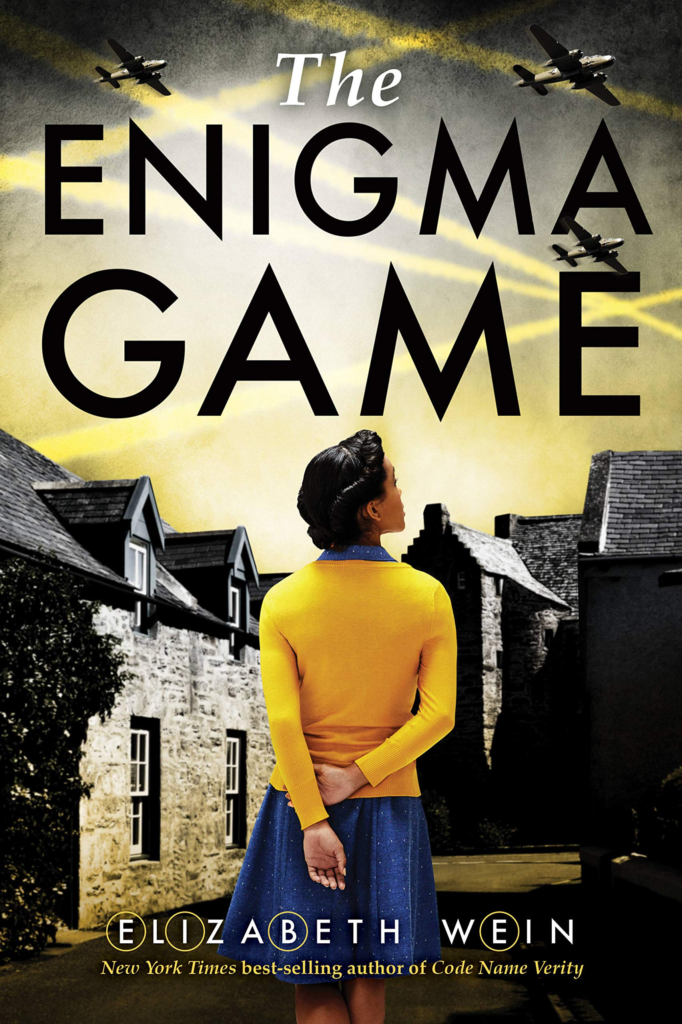The historical fiction WWII novel, The Enigma Game, is actually the “prequel” to Elizabeth Wein’s critically acclaimed Code Name Verity and Rose Under Fire. I did not read her earlier works but this did not at all detract from my enjoyment of this well-crafted tale. The story is told in the voices of three young people brought together by the strange circumstances of war.
It is 1940 and 15-year old Louisa has recently lost both her parents at the hand of German forces. She is the child of a black Jamaican father and a white British mother, and has to suddenly be responsible for her own survival. She has a difficult time finding employment in her new English homeland because of racial prejudice and her young age, but is able to find a job in Scotland taking care of an elderly German-born ex opera singer.
Jamie, the second narrator, is a Royal Air Force flight leader stationed at a base near the Scottish village of Windyedge, where the story takes place. Ellen is the third voice, and she is a youngish volunteer driver for the military base, and grew up as a “Traveller,” the common name for the nomadic tribes of the British Isles.
Wein cleverly weaves a tale of espionage and wartime drama as seen through the eyes of her three main characters. A pilot from the German resistance leaves an Enigma code maker/breaker machine at the Limehouse pub, which is the central location for the main characters. Louisa, a classically trained musician, is able to crack German pilot code communications to help aid the Royal Air Force. The pacing of the story really varies with the voice, and I found Louis’s voice to be spunky and intelligent but somewhat contrived, as opposed to the other two older characters who seemed more genuine. I was most engaged with Jamie’s narration of dangerous flight missions. I think this story would resonate with WWII history buffs, and it has an impressive amount of historical detail that I found fascinating. Recommended grade level for this book is 9th grade and above. I give the book four out of five stars.
Review by M. DeBuse-Losh, OHS Library Secretary

